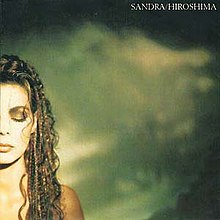
"Nothing Else Matters" is a song by American heavy metal band Metallica. It was released in 1992 as the third single from their self-titled fifth studio album, Metallica. The song peaked at number 11 on the Billboard Mainstream Rock Tracks chart, number 6 on the UK Singles Chart, number 1 in Denmark, and reached the top ten on many other European charts. "Nothing Else Matters" was featured as a playable track in the music video game Guitar Hero: Metallica. Recognized as one of Metallica's best known and most popular songs, the power ballad has become a staple in live performances.

"Another Day in Paradise" is a song recorded by English drummer and singer-songwriter Phil Collins. Produced by Collins along with Hugh Padgham, it was released as the first single from his number-one album ...But Seriously (1989). As with his song for Genesis, "Man on the Corner", the track has as its subject the problem of homelessness and paradise; as such, the song was a substantial departure from the dance-pop music of his previous album, No Jacket Required (1985).
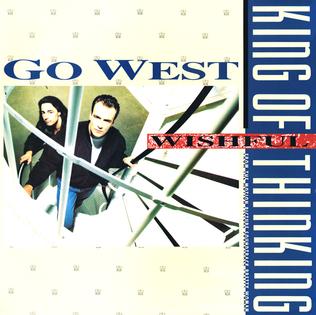
"King of Wishful Thinking" is a song by British pop duo Go West, written by Peter Cox, Richard Drummie and Martin Page. It was featured in the film Pretty Woman and appeared on its soundtrack. It was later featured on Go West's third studio album, Indian Summer, in 1992.

Shapes That Go Together is a song by Norwegian band A-ha.
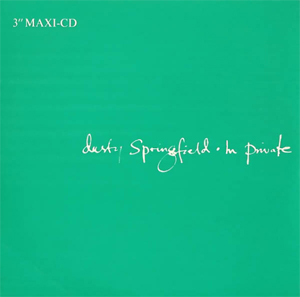
"In Private" is a song by British singer Dusty Springfield, released as a single on 20 November 1989. It was Springfield's third single in a row to be a chart success, after an absence of nearly two decades from the charts. Both "In Private" and Springfield's previous single, "Nothing Has Been Proved" were produced by Pet Shop Boys, who helped return Springfield to prominence with their 1987 hit collaboration "What Have I Done to Deserve This?". Both Springfield singles were included on her 1990 British album Reputation.

"Such a Shame" is a song written by Mark Hollis for the English band Talk Talk's second album It's My Life (1984). It was released as the album's second single and went on to become a top 10 hit across Europe.

"(I'll Never Be) Maria Magdalena", also known simply as "Maria Magdalena", is a song recorded by German singer Sandra for her debut studio album The Long Play (1985). The song, written by Hubert Kemmler, Markus Löhr, Michael Cretu and Richard Palmer-James, was released as the lead single from The Long Play on July 15th. 1985, by Virgin Records, and was a major chart hit in Europe, reaching number one in multiple countries. It remains Sandra's signature song.
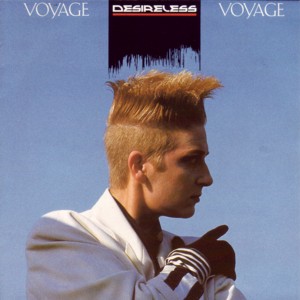
"Voyage, voyage" is a song by French singer Desireless, released as the first single from her debut studio album, François (1989). It was written by Jean-Michel Rivat and Dominique Dubois, and produced by the former. Sung entirely in French, the song transcended the language barrier on the music charts and became a huge international success between 1986 and 1988, reaching the top position in more than ten countries across Europe.

"In the Heat of the Night" is a 1985 song by German singer Sandra, written by Michael Cretu, Hubert Kemmler, Markus Löhr and Klaus Hirschburger, and produced by Cretu. Kemmler also provided backing vocals on this recording as well as numerous Sandra's songs in the 80s.
"I'll Be Your Baby Tonight" is a 1967 song by Bob Dylan first released on John Wesley Harding. It features Pete Drake on pedal steel guitar, and two other Nashville musicians, Charlie McCoy on bass guitar and Kenneth Buttrey on drums, both of whom had appeared on Dylan's previous album, Blonde on Blonde.

"Heaven Can Wait" is a 1988 song performed by German singer Sandra and written by Michael Cretu, Hubert Kemmler, Markus Löhr and Klaus Hirschburger. It was arranged by Michael Cretu and Markus Löhr, and produced by Cretu. The song was released as the lead single from Sandra's third studio album Into a Secret Land in mid-1988. The single reached the top 10 in Austria and France, the top 20 in Germany and Switzerland and was one of Sandra's few singles to break into the UK Top 100. In Austria, it was also a top 10 airplay hit. It was Sandra's fourth and last silver-certified single in France.

"Secret Land" is a 1988 pop song by German singer Sandra. It was written by Uwe Gronau, Hubert Kemmler, Michael Cretu, Mats Björklund, Susanne Müller-Pi, Klaus Hirschburger and Michael Höing, and produced by Cretu. It is an adaptation of the 1987 Kemmler-produced song "Trenchcoat Man" recorded by the short-lived German band Fabrique, the members of which were Gronau and Höing.

The discography of German singer Sandra consists of 10 studio albums, eight compilation albums and 47 singles, including 10 promotional-only singles. Her videography comprises three long-form video releases and 26 music videos.
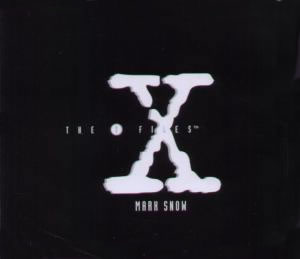
"The X-Files" is an instrumental written and produced by American film and television composer Mark Snow. On its parent album, The Truth and the Light: Music from the X-Files, the track is titled "Materia Primoris". It is a remixed version of the original theme Snow composed for the science fiction television series The X-Files in 1993. The composition was released as a single in 1996 and achieved chart success, particularly in France, where it reached number one on the SNEP Singles Chart. The composition has since been covered by many artists, including DJ Dado and Triple X; DJ Dado's version was a major hit in Europe while Triple X's version reached number two in Australia.

"Infinity", also known as "Infinity ", is the debut single by British acid house musician Guru Josh. It was originally released in December 1989 as the lead single from his debut album of the same name. The song was re-released in 2008 in a remixed version called "Infinity 2008".

"Innocent Love" is a 1986 synthpop song performed by German singer Sandra. It was written by Hubert Kemmler, Ulrich Herter, Susanne Müller, and Klaus Hirschburger, and produced by Michael Cretu and Armand Volker. The song was released as the first single from Sandra's second solo album, Mirrors. The single was commercially successful, reaching the top 10 in Norway and France, and the top 20 in Germany and Switzerland.

"Stop for a Minute" is a 1987 pop song by German singer Sandra, written by Michael Cretu and Klaus Hirschburger, and produced by Cretu. It was released as the second single from Sandra's first greatest hits compilation Ten on One in early 1988, and reached the top 10 on the German sales and airplay charts. The song was used in the German crime TV series Tatort, in the episode "Salü Palu", where Sandra performs it in a club scene. The show was set in Saarbrücken, Sandra's hometown, and aired on 24 January 1988.

"We'll Be Together" is a 1988 pop song performed by German singer Sandra from her third studio album Into a Secret Land. It was written by Hubert Kemmler, Markus Löhr, Klaus Hirschburger and Sandra Cretu, and produced by Michael Cretu. This is the only song along with "When the Rain Doesn't Come" that was written or co-written by Sandra herself, prior to the 2007 album The Art of Love.

Paintings in Yellow is the fourth studio album by German singer Sandra, released on 26 March 1990 by Virgin Records. It was commercially successful and spawned the single "Hiroshima".
Wishful Thinking are a British rock band, originally formed in the 1960s.
